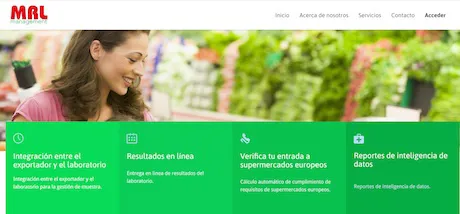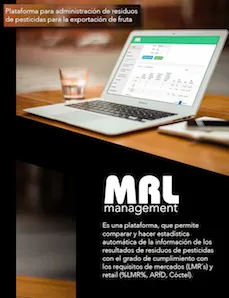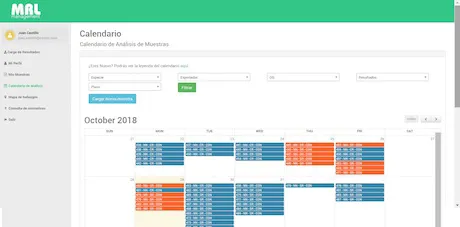Until recently, Chilean fruit exporters could suffer a serious commercial problem when their containers arrived at the ports of destination: their fruit could be rejected because it had a high level of pesticide residue. As a result, exporters would have to make urgent efforts to redirect their product to another country, and of course, at a lower price.
A rejection of this type is not only expensive, it also wastes time and deteriorates the country's image, damaging the trust between the exporter and importer.

MRL Management, which understands that international markets require healthy safe food, and that it is impossible for producers and exporters to avoid using pesticides, has launched a comprehensive and fully automated solution to manage pesticide residues in fruits for export.

It is a software that allows comparing and making automatic statistics of the information regarding pesticide-residue results, which allows exporters to know in advance if the cargo is complying with international regulations, and the degree of compliance with the maximum residue limits (MRL). The target markets have compliance requirements, so importers control that the product they buy doesn't have pesticide residues that exceed the destination's MRLs, or violate the retailers' requirements.
"This tool allows exporters to have a certainty that the export industry and laboratories did not use to have, achieving an optimal marketing of their products and meeting the requirements of international markets," said the product manager of the company, Makarena Quevedo, adding that this software also managed to develop business intelligence, given the data generated from its use.

This 100% Chilean start-up was born with the support of Imagine Lab (Microsoft's Innovation Center) and Corfo.
Quevedo added that, generally, it's the quality department of each exporting company that needs to invest in the search for information, which is often diverse, complex and of low reliability, in order to comply with market requirements.
"This tool can save at least 25% of a person's time and can avoid losses from rejections of up to 260,000 USD per year, if we consider a 3% rejection rate in the EU for a company that exports 100 containers per year," Quevedo stated.
